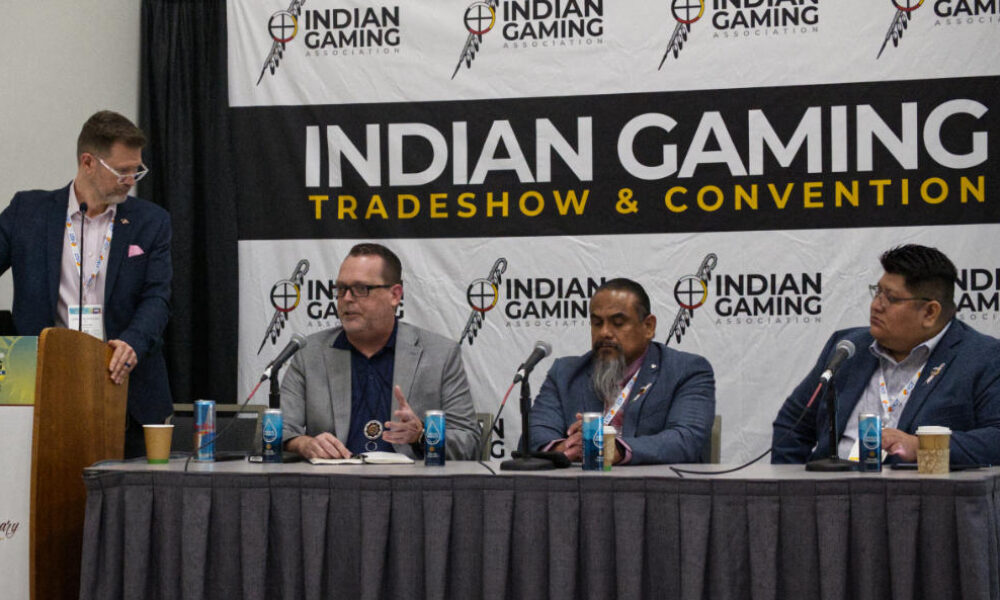“It’s scary.”
That was the consensus from the IGA panel on how to deal with and regulate new technologies in the gaming industry. Sean Mason, a Senior Director of Tribal Services for BMM test labs, agreed, “If you overregulate, you limit technology. If you underregulate, you can get hurt.”
“It’s normal to be scared of something you’re not familiar with, something you don’t know,” said Scott Riley, a gaming regulator from Pueblo of Tesque Gaming Commission. “One of the things we strive to do is to learn as much about it (new tech) as possible from the test labs, other jurisdictions, other tribes, and our own operators.”
Myron Salvador, another gaming regulator from the Santa Clara Pueblo Gaming Commission, added, “It does feel more comfortable when we know that the process has been completed in other jurisdictions. Why reinvent the wheel? If it’s out, there use it.”
Both regulators depend on the major testing labs (GLI, BMM, and Eclispe) for guidance. However, Mason said, “Our main goal, like the regulators, is to protect the tribe’s assets. We’re completely independent from the vendors and we take that very seriously. If we find an issue here or there, we go back and forth to make sure that our clients are OK, or at least understand the possible risks.”
Regulations can quickly become outdated. Riley said, “We need to regularly review and update our game regs to meet whatever advancements are coming.” However, he noted, “I hate using this word, but when we do rewrite these regulations, it is important to have some wiggle room, because technology is always changing.”
Some of the “scariest” technologies that moderator Dan Kustelski from Chalkine listed were cryptocurrencies, online betting, cyber threats, and artificial intelligence.
Mason pointed out that there’s a good and bad to all these new inputs. He mentioned that using a new tool like ChatGTP may become a way to improve writing new gaming standards and regulations.
Salvador said, “We’ve got to make sure that not just the operational side is doing their homework, but also the staff and Gaming Commission are doing their own homework, making sure that the software going into these games has been tested, and approved.”
He then gave what may have been the best summary of these issues. “We need to make sure we communicate more with ourselves, with other jurisdictions, and the vendors to make sure we’re all OK with whatever new software or technology is coming into our casinos.” Or, as he repeated, “We need to do our homework.”

